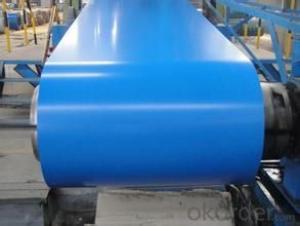Rebar, the backbone of modern construction, is an essential component for any building project. Whether you’re a contractor, a DIY enthusiast, or a large construction company, finding the right rebar for your needs can be a daunting task. The market is flooded with options, and knowing where to start can be overwhelming. But fear not! In this article, we’ll explore the various market options available for purchasing rebar, providing you with the knowledge and confidence to make the best decision for your project.
Understanding Rebar
Before we dive into the market options, it’s important to understand what rebar is and why it’s so crucial in construction. Rebar, short for reinforcing bar, is a steel bar used to strengthen concrete structures. It’s typically made from high-quality carbon steel and is characterized by its ribbed surface, which helps it bond with the concrete. Rebar is used in a variety of applications, from residential homes to large commercial buildings and bridges.
Why Choose the Right Rebar?
Choosing the right rebar is not just about the quality of the material, but also about the specific requirements of your project. Different types of rebar are designed for different purposes, and using the wrong type can lead to structural issues and safety concerns. For example, some rebar is designed to resist high temperatures, while others are meant for earthquake-prone areas. It’s essential to consult with an engineer or a construction expert to determine the appropriate type of rebar for your project.
Local Suppliers
One of the most convenient options for purchasing rebar is through local suppliers. These businesses often have a wide range of rebar sizes and grades available, and they can provide personalized service and support. Local suppliers can also offer quick delivery times, which is crucial for projects with tight deadlines. However, the downside of local suppliers is that their selection might be limited compared to larger, national suppliers.
National Distributors
National distributors offer a broader range of rebar options, including specialty grades and sizes that may not be available at local suppliers. They also tend to have competitive pricing due to their large volume purchases. The downside of national distributors is that they may not offer the same level of personalized service as local suppliers, and delivery times can be longer.
Online Retailers
The rise of e-commerce has brought a new dimension to the rebar market. Online retailers offer the convenience of shopping from the comfort of your home or office. They often have a vast selection of rebar types and can provide detailed product information, making it easier for you to make an informed decision. Additionally, online retailers can offer competitive prices and sometimes provide discounts or special offers. However, the downside of online shopping is the lack of physical inspection of the product before purchase, which can be a concern for some buyers.
Direct from Manufacturer
Purchasing rebar directly from the manufacturer can be a cost-effective option, as it eliminates the middleman and can result in significant savings. Manufacturers often have a wide range of rebar types and can provide custom solutions for specific project requirements. However, the process of dealing directly with manufacturers can be more complex and may require more time and effort compared to other purchasing options.
Auction Sites and Surplus Sales
For those looking for deals and discounts, auction sites and surplus sales can be a goldmine. These platforms often offer rebar at a fraction of the retail price, making it an attractive option for budget-conscious buyers. However, the quality and condition of the rebar can vary, and there may be limited information available about the product’s history. It’s essential to do thorough research and consider the potential risks before making a purchase from these sources.
Recycled Rebar
With the growing emphasis on sustainability, recycled rebar has become an increasingly popular option. Recycled rebar is repurposed from demolished structures and can be a more environmentally friendly choice. It’s important to ensure that the recycled rebar meets the necessary quality standards and is suitable for your project’s requirements.
Price Considerations
When evaluating the market options for rebar, price is a significant factor. It’s essential to consider the total cost, including delivery fees, taxes, and any additional services that may be required. Comparing prices from different suppliers can help you find the best deal, but it’s also crucial not to compromise on quality for the sake of saving a few dollars.
Quality Assurance
Quality should never be overlooked when purchasing rebar. Ensure that the rebar you choose meets industry standards and has been tested for strength and durability. Look for certifications and ask for test results from the supplier. Investing in high-quality rebar may cost more upfront, but it can save you time and money in the long run by reducing the risk of structural failures and costly repairs.
Conclusion
The rebar market offers a variety of options to suit different needs and budgets. Whether you opt for local suppliers, national distributors, online retailers, direct manufacturer purchases, auction sites, surplus sales, or recycled rebar, it’s crucial to consider factors such as price, quality, and the specific requirements of your project. By taking the time to research and compare your options, you can make an informed decision and select the best rebar for your construction needs. Remember, the right rebar can make all the difference in the success and longevity of your project.

